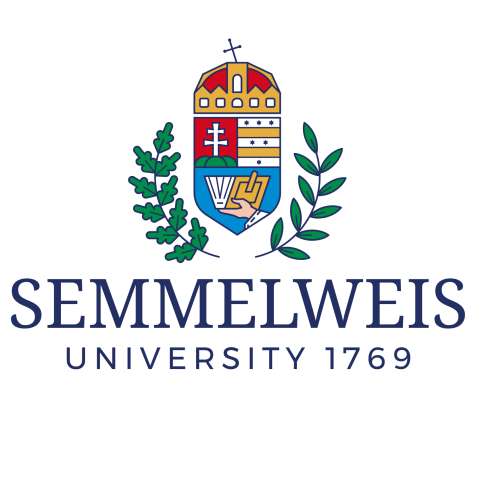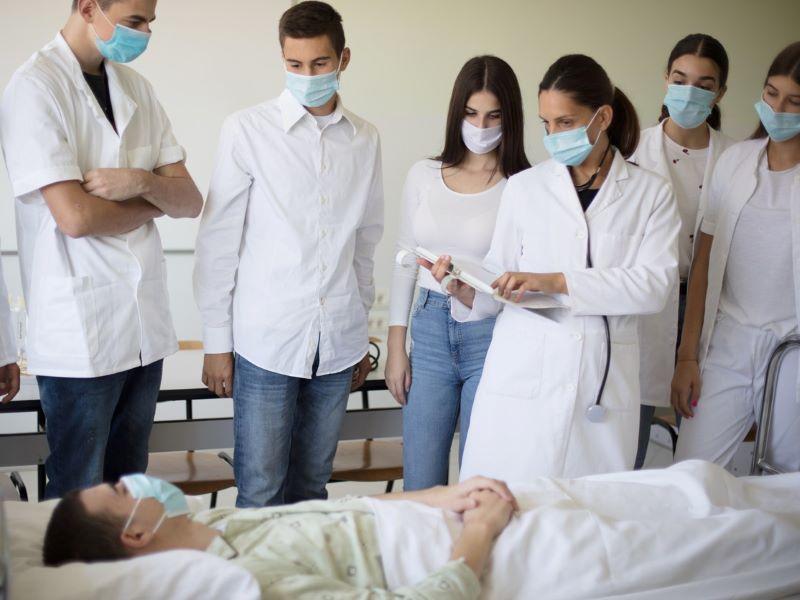
How to promote primary interest in basic medical education at the undergraduate level
You may also like
High-level science-based medicine can only be practised with a broad theoretical knowledge. Furthermore, a major goal of medical education is for the practitioner to research and develop his or her own field, which also strengthens the role of theoretical subjects.
Theoretical medical education in a broad sense can be divided into three major phases: the teaching of theoretical subjects in undergraduate medical education, the scientific activities of medical students in theoretical subjects (in Hungary, this works through scientific student circles), and the academic activities of PhD students in postgraduate training in theoretical institutes.
- How medical education can benefit from global challenges
- When to use online laboratories for STEM teaching and why
- Why and how to build awareness of cultural sensitivity in healthcare curricula
The three phases are generally characterised by very different prior professional knowledge, life situations, student and mentor strategies, and career goals. All these result in different motivations of students and their supervisors as well as diverse strategies optimised for the specific situation. Of these groups, undergraduate medical education in theoretical institutes poses the greatest challenge for trainers.
Selecting students for undergraduate training
Theoretical activities are often carried out in the theoretical institutes of medical universities, in the first or second (and to a lesser extent third) year of medical training, in the so-called theoretical and pre-clinical modules.
Students are selected according to several factors, the most important of which is a centrally set science exam. However, non-professional factors (such as examination results in non-science subjects, language skills and other activities) also play a role. Students who perform well overall are generally characterised by a strong interest, general motivation, high ambition, a sense of purpose and a desire to actively pursue a career.
Encouraging students with different levels of motivation
In line with the very broad selection of students in undergraduate training, including both students with a strong theoretical interest and others with a typically clinical orientation, the motivations of students are also very diverse.
Most students are presumably thinking about a high-quality (if not an exceptionally high-quality) career and a strong average medical practice, and they optimise their academic activities accordingly. At the lower end of the motivational spectrum are those (fortunately, few) students who, because of their limited background, skills or ambitions, are seeking to “survive” and obtain a medical degree with as little energy input as possible. At the other end of the spectrum are students who want to use medical training to raise their own level of excellence, to achieve a higher and more perfect level of knowledge, and to experience the opportunities offered by medicine as broadly and deeply as possible during their years at university.
Managing this broad spectrum of students, and presenting the theoretical beauty of medicine to every one, potentially requires different strategies for theoretically and clinically oriented students, as well as for less-motivated, average or highly motivated ones.
Using instructors’ impact and in-person lectures as motivating forces
Maintaining students’ interest and motivation in theoretical medicine at this stage of their career is a complex and multifaceted task. Students’ contact with lecturers takes place weekly, in forms that include lecture-based classes, consultations and laboratory practices. Although means other than personal knowledge transfer, such as academic textbooks, online resources or off-campus group learning, can play a role in the successful acquisition of the subject and in deepening the interest in theoretical medicine, personal inspiration from lecturers is perhaps still one of the most effective ways of stimulating and maintaining motivation. The main framework for this is the classroom lecture, the primary function of which is not to deliver or transmit the subject matter but to inspire and sustain interest. This can be achieved by focusing on understanding key points rather than repetition of factual knowledge, incorporation of recent scientific developments or even debates, promoting interactivity even during the lectures. The character and credibility of the instructor is also still the main motivation, alongside the many competency-based, often digital, teaching aids.
Small group consultations
Small group consultations provide an environment where the instructor has the best opportunity to discuss the context, to highlight possible problems of understanding, and to cover certain clinical aspects in more detail. Students should come to the consultations prepared with specific questions, and the instructor motivates students to actively participate in the interactive consultations. This can be achieved by generating an environment of trust with the students (“There are no stupid questions”), bringing forward provocative or controversial issues, and emphasising how deeper insight helps overall understanding. This will help them to acquire deeper knowledge that they cannot learn from textbooks.
Laboratory practices
Laboratory practices range from anatomical dissection exercises to biochemical laboratory experiments and human physiology tests. Their primary purpose is to illustrate the curriculum through concrete examples, to emphasise the experimental nature of medicine, to explain how experiments are carried out, and to familiarise students with the tools of scientific research. Experimental exercises can be an important motivation to stimulate the scientific interest of the most committed students.
Assessment as motivation
Assessment is an important aspect in maintaining motivation. This includes not only end-of-semester and end-of-year exams but also more or less regular midterm examinations. Midterm exams play a key role in maintaining students’ level of knowledge, preventing them from falling behind (getting lost in the curriculum), and maintaining the interactivity of teaching. The inclusion of these results in the end-of-semester or end-of-year examination grade can also be a very important motivating factor for students.
Mentoring as motivation
Personalised mentoring provides an opportunity for the mentor to work closely with the student to set a personal example and help them solve and overcome problems. Students can need help understanding that problems do not represent a hopeless situation but rather offer an opportunity to experience the beauty and success of the scientific approach. In this, the mentor has a prominent role and personal responsibility.
Unfortunately, due to the large number of students, the opportunities for personal mentoring in undergraduate education are very limited. Small group consultations and exercises may provide some forms of mentoring, but these mainly focus on making the curriculum more accessible and exploring the potential of theoretical medicine.
Make the most of limited opportunities to motivate undergraduate students
The methods of attracting and maintaining the motivation of students, and the possibilities of personal or small group mentoring are limited at the undergraduate level of education due to the large student population. The situation for this group is different from that of those in scientific students’ associations in Hungary or those training at the PhD level. One of the major challenges of theoretical undergraduate medical training is to inspire this very broad spectrum of undergraduate students to become not just good enough but outstandingly good professionals.
Attila Mócsai is professor of physiology at the department of physiology in the Faculty of Medicine at Semmelweis University, Budapest, Hungary.
If you would like advice and insight from academics and university staff delivered direct to your inbox each week, sign up for the Campus newsletter.




